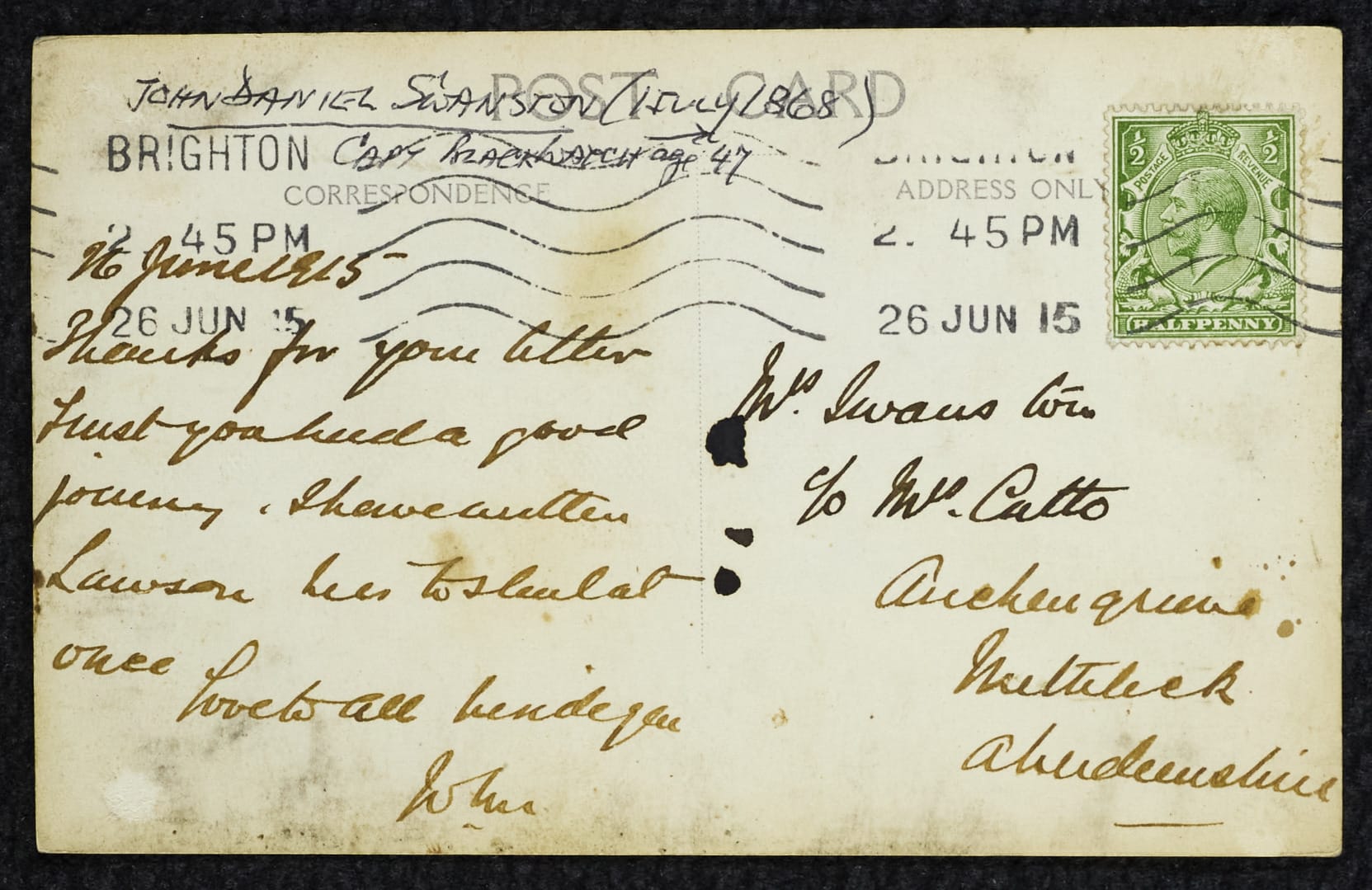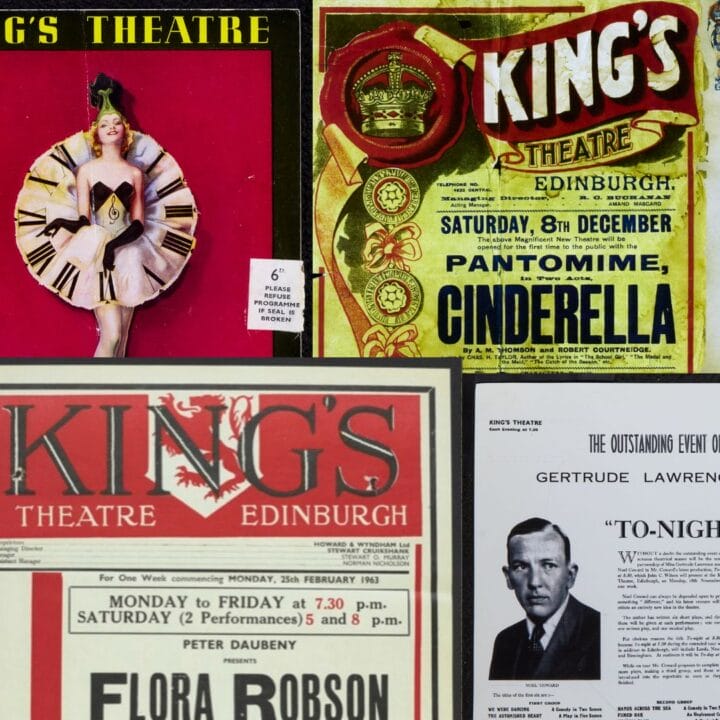You’re probably not thinking about blood when you visit the theatre, unless you’re watching Macbeth. But did you know the King’s Theatre played a remarkable role in the evolution of healthcare?
Blood transfusions, brought to you by The King’s Theatre, Edinburgh.
On 17 February 1937, the King’s hosted a charity performance in support of the Edinburgh Blood Transfusion Service (EBTS), a pivotal moment in an already extraordinary journey.
At the time, blood transfusion was still emerging from its infancy. Though pioneered on the battlefields of World War I, the technique had seen limited uptake in Britain, where outcomes were often poor. The challenge wasn’t the science, it was logistics. Donors were hard to find quickly, and quantities collected were small to be effective. As a result, transfusions frequently were seen as ‘too little, too little’.
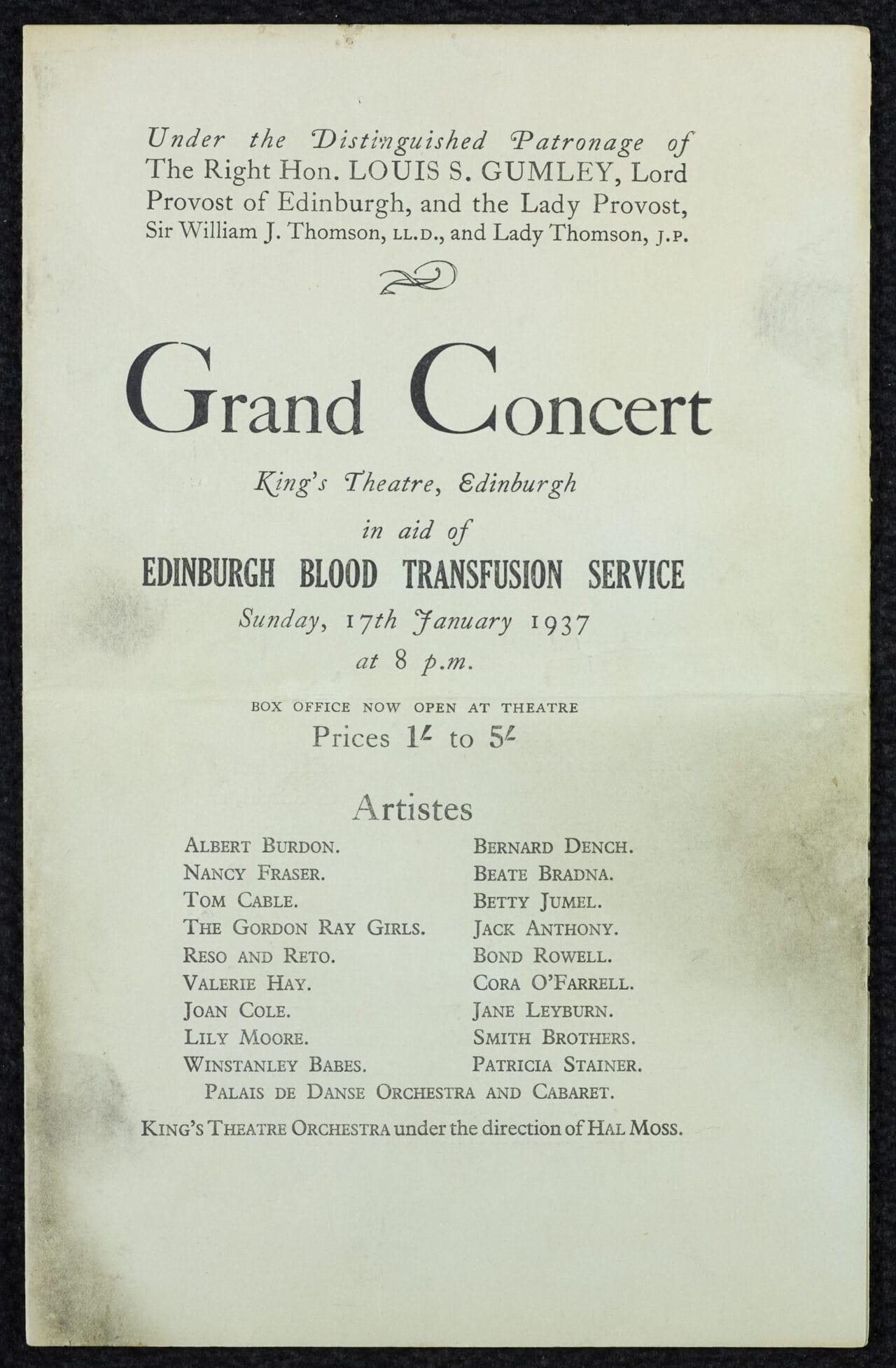
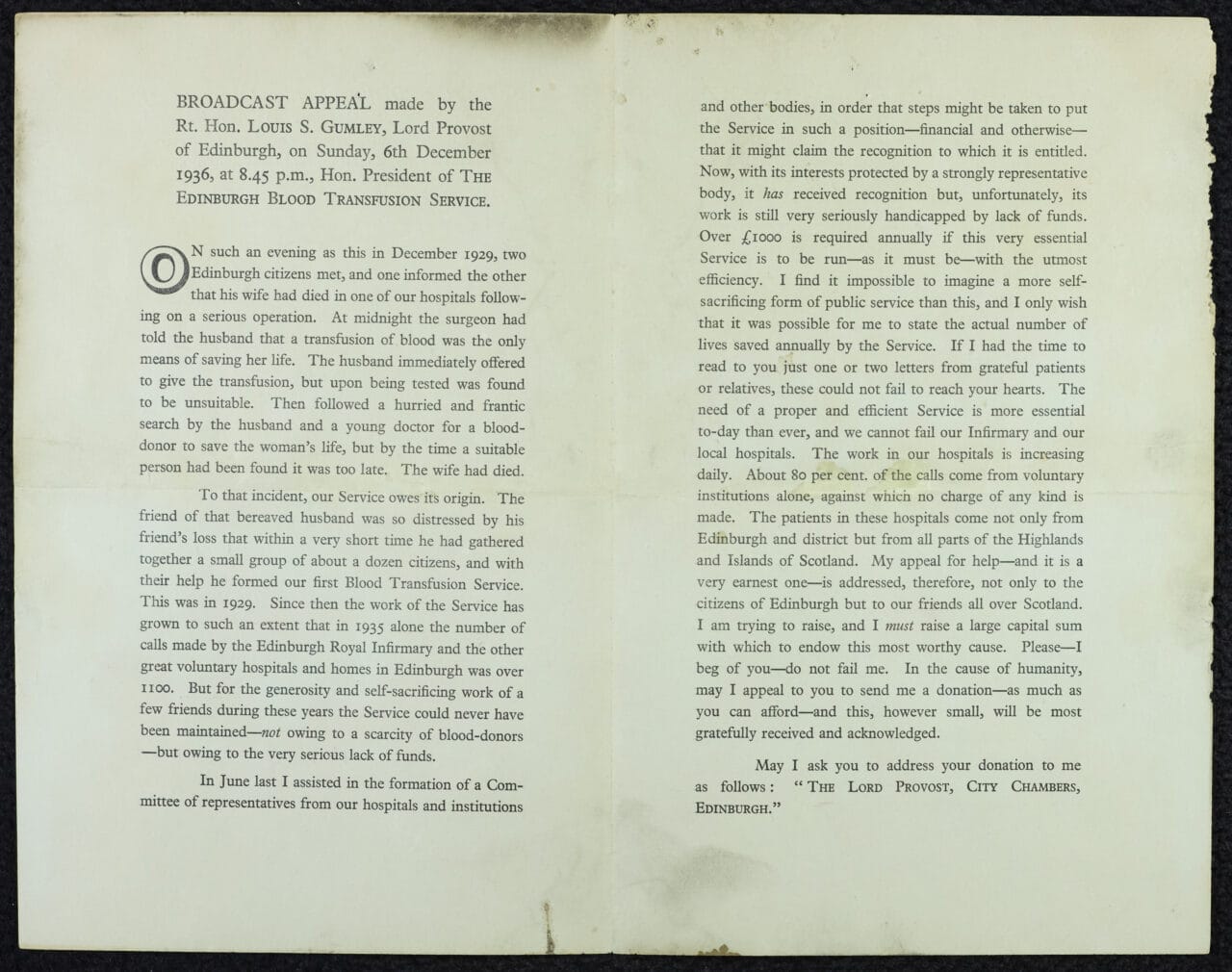
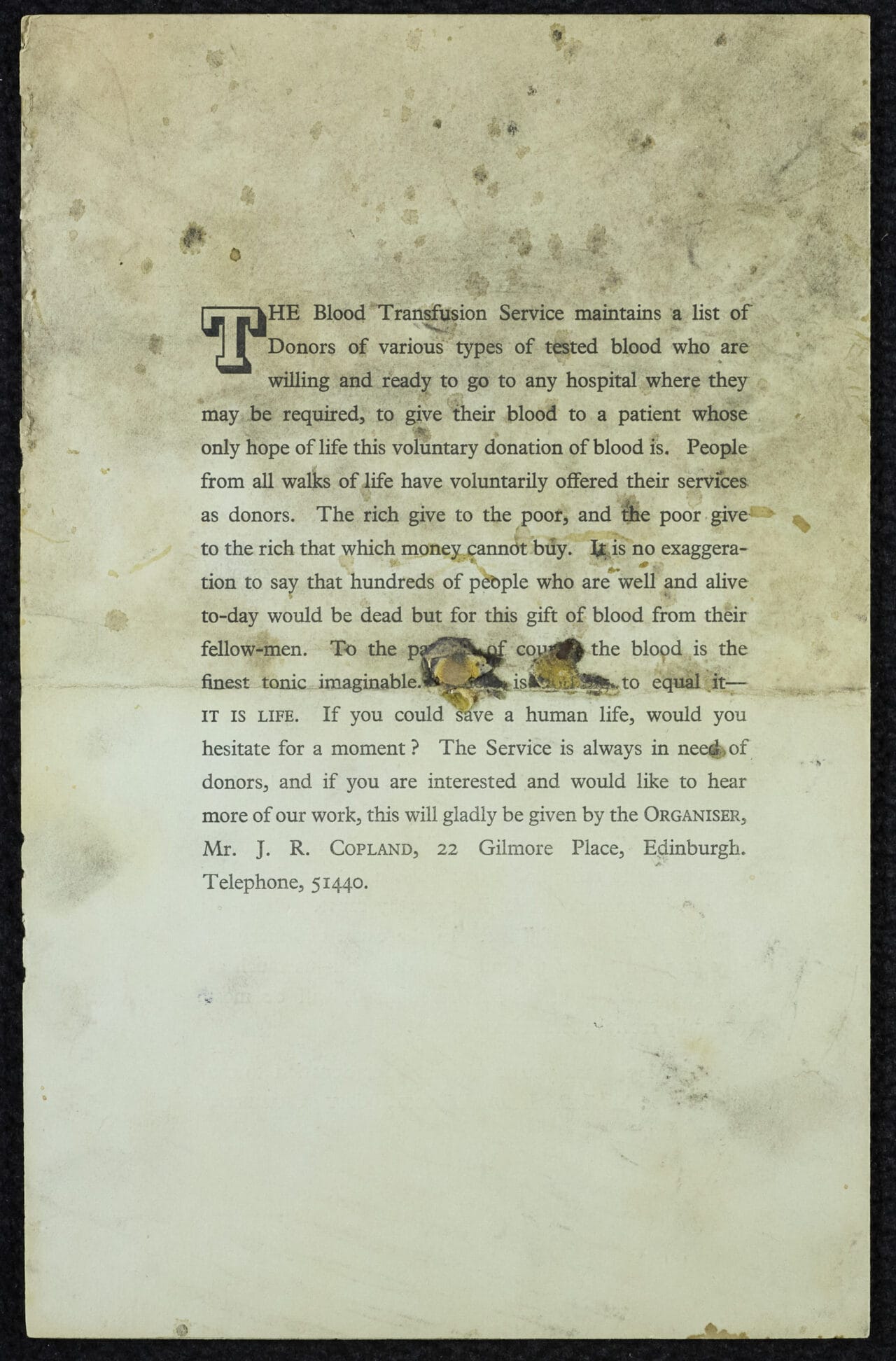
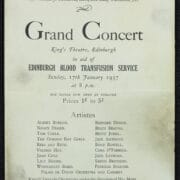
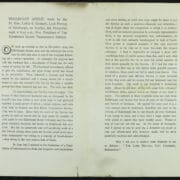
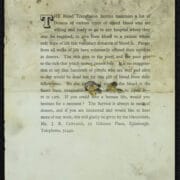
Why Edinburgh took the lead
In 1930, driven by personal tragedy and a vision for change, Edinburgh dentist Jack R. Copland founded the EBTS. A friend’s wife had died due to the lack of a timely blood donation, sparking Copland’s determination to ensure others wouldn’t suffer the same fate. Through his role in the Holyrood Conclave of the Order of Crusaders, Copland established a panel of 350 potential donors which was an ambitious undertaking for the era.
But by 1936, the Conclave’s financial support had run dry. Undeterred, Copland pressed on independently, needing £1,100 to sustain operations for the year. A third of that crucial funding came from benefit performances at the King’s and the New Victoria Theatre. The February 1937 concert at the King’s was a triumph and marked a turning point for the service. This was not the first time charity concerts had been performed on the King’s stage. In its earliest years, the Felix Gade Orchestra performed in a series of Sunday concerts for charitable causes in 1906 and 1907. Later, during World War II, the King’s again showcased its civic responsibility continuing charity concerts and variety shows to aid the troops and to support children of prisoners of war.

From local service to national lifeline
The success of EBTS laid the foundation for something even greater. With the onset of World War II and the looming risk of mass casualties, Copland’s model was adopted at a national scale. Under his leadership, and with support from EBTS staff, the Scottish government created five regional blood banks, using Copland’s donor database as a blueprint. Today, the service lives on as the Scottish National Blood Transfusion Service, headquartered at the Jack Copland Centre in Edinburgh.
Did you know?
Benefit concerts have a storied past. The tradition of benefit concerts reaches back centuries. George Frideric Handel is widely credited with hosting the first in 1749, raising funds for a Foundling Hospital in London. At the King’s, the spirit of giving has been ever-present. Examples abound in The People’s Archive:
-
- Amateur companies often staged performances “in aid of local charities” (see PA/33/1/11 and PA/33/1/72).
- In 1956, a stellar ensemble performed for the Edinburgh Union of Boys Club (PA/21/74).
- The Harry Lauder Million Pounds Fund drew major stars to the stage in 1918 (PA/36/1/49).
Interested in uncovering more? Explore our Guide to the People’s Archive to start your own journey through history.
